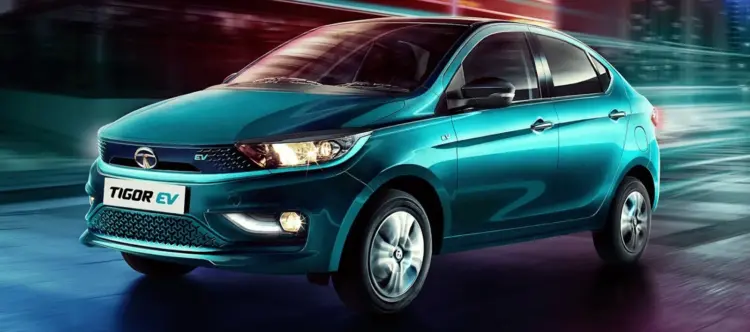As the world becomes increasingly aware of the importance of environmental sustainability, industries across various sectors are adopting innovative solutions to reduce their carbon footprints. The automotive sector, in particular, plays a pivotal role in this transformation, with electric vehicles (EVs) emerging as a key solution to combat air pollution and reduce greenhouse gas emissions. Among the many players in the EV market, Tata electric cars have been at the forefront of promoting environmental sustainability in India.
In this article, we will explore how Tata electric cars contribute to environmental sustainability and the role of electric cars in India in shaping a greener future for the country. We will also examine the features and benefits of Tata’s electric vehicles, their impact on reducing carbon emissions, and how they align with the government’s vision of a cleaner, more sustainable transportation ecosystem.
Tata Electric Cars: Leading the Green Revolution
Tata Motors, one of India’s largest and most well-known automotive manufacturers, has made significant strides in the electric vehicle market. The company has been working tirelessly to develop and promote Tata electric cars, providing customers with eco-friendly alternatives to traditional internal combustion engine (ICE) vehicles. Through its innovation and commitment to sustainability, Tata Motors has positioned itself as a leader in the Indian EV market.
The company’s electric car lineup includes a range of models, including the Tata Nexon EV, Tata Tigor EV, and the upcoming Tata Altroz EV. These models not only offer impressive driving performance but also come with the latest technology, making them a perfect blend of eco-friendliness and convenience for consumers.
Why Are Electric Cars Important for Environmental Sustainability?
Electric cars play a crucial role in mitigating the harmful effects of traditional gasoline and diesel vehicles, which are major contributors to air pollution and global warming. Here’s how electric cars help promote environmental sustainability:
Reduction of Greenhouse Gas Emissions: Traditional vehicles emit significant amounts of CO2 and other greenhouse gases, which are the primary cause of global warming. Electric cars in India, like Tata electric cars, produce zero tailpipe emissions, making them a cleaner option for reducing air pollution.
Decreased Dependency on Fossil Fuels: Electric vehicles do not rely on petroleum-based fuels, which reduces the demand for fossil fuels. This shift not only conserves natural resources but also helps in reducing the geopolitical tensions associated with oil dependency.
Improved Air Quality: In urban areas, air quality has become a serious concern due to the pollution caused by vehicular emissions. By adopting electric cars in India, citizens can help reduce the harmful levels of particulate matter and other pollutants in the air, contributing to healthier living environments.
Energy Efficiency: Electric motors are inherently more efficient than internal combustion engines (ICE). EVs require less energy to travel the same distance, making them a more energy-efficient mode of transportation. This efficiency also translates into reduced energy consumption and a lower environmental impact.
Promoting Renewable Energy: Tata electric cars and other EVs are often charged using electricity generated from renewable sources like solar, wind, and hydroelectric power. This further reduces their carbon footprint and supports the growth of clean energy alternatives.
Tata Electric Cars: Key Features and Innovations
Tata Motors’ commitment to environmental sustainability is evident in the features and innovations that define its electric vehicles. These features are designed to enhance the driving experience while minimizing the vehicle’s environmental impact.
Battery Technology: Tata electric cars are equipped with advanced lithium-ion batteries that offer long driving ranges and better energy efficiency. The Tata Nexon EV, for example, offers a range of around 275-489 km on a single charge, making it one of the most practical electric vehicles for daily commutes and long-distance drives in India.
Regenerative Braking System: To maximize energy efficiency, Tata electric cars are equipped with regenerative braking systems that capture energy during braking and feed it back into the battery. This feature helps improve the overall range of the vehicle and ensures a more sustainable driving experience.
Eco-Friendly Manufacturing: Tata Motors adopts sustainable practices in the manufacturing of its electric vehicles. From using recycled materials in vehicle production to ensuring that the manufacturing facilities themselves operate with minimal environmental impact, Tata is committed to making the entire lifecycle of its electric cars more sustainable.
Smart Charging Solutions: Tata Motors is also working towards enhancing the EV charging infrastructure in India. The company is collaborating with various partners to install public charging stations across cities and highways. This ensures that owning a Tata electric car is not only environmentally responsible but also practical and convenient for Indian consumers.
Affordable and Accessible: One of the major challenges in promoting electric vehicles is making them affordable for the general population. Tata electric cars have been designed to offer an affordable yet high-quality alternative to traditional vehicles. By making electric vehicles more accessible, Tata Motors helps promote the transition towards greener transportation options.
Impact of Tata Electric Cars on the Indian Market
The electric cars in the Indian market have seen significant growth in recent years, driven by the growing environmental consciousness among consumers, government policies promoting EV adoption, and the rising demand for clean energy alternatives. Tata Motors has played a vital role in shaping this growth, and their electric vehicles have contributed to the increasing adoption of EVs in India.
With the increasing affordability of EVs, many consumers are exploring financing options through a car loan app, which simplifies the process of applying for an auto loan. These apps provide quick approvals, flexible repayment options, and competitive interest rates, making it easier for individuals to purchase electric vehicles.
Government Initiatives and Support: The Indian government has introduced several initiatives to promote electric vehicle adoption, including subsidies, tax benefits, and the Faster Adoption and Manufacturing of Hybrid and Electric Vehicles (FAME) scheme. Tata Motors, with its innovative EV models, is aligning with these government efforts, making electric vehicles more affordable and accessible to the masses.
Rural and Urban Reach: Tata electric cars are not limited to urban areas. With the growing EV charging infrastructure and Tata’s emphasis on affordability, electric vehicles are beginning to penetrate rural areas as well. This shift towards cleaner mobility options is crucial for improving air quality and promoting environmental sustainability in both urban and rural regions.
Job Creation and Green Economy: The shift towards electric mobility also promotes the growth of a green economy in India. With the increased demand for electric vehicles, new industries related to battery manufacturing, charging infrastructure, and maintenance services are emerging. Tata Motors is contributing to this green economy by creating jobs and supporting sustainability efforts across its supply chain.
Electric Vehicle Ecosystem: Tata’s efforts go beyond just manufacturing electric vehicles. The company is investing in creating a robust ecosystem for EVs in India, including building a nationwide charging infrastructure and offering finance options for customers. This holistic approach ensures that electric vehicles can be easily integrated into the daily lives of Indian consumers.
Future of Tata Electric Cars and Environmental Sustainability
Looking ahead, Tata Motors plans to expand its electric vehicle portfolio with more models and innovations aimed at enhancing sustainability. The company is also focusing on reducing the lifecycle carbon emissions of its electric vehicles, including aspects such as battery disposal and recycling.
As the demand for electric cars in India continues to rise, Tata Motors is positioning itself as a key player in driving the country toward a more sustainable future. With continued advancements in battery technology, more affordable pricing, and growing infrastructure, Tata electric cars will play a vital role in promoting environmental sustainability and helping India achieve its climate goals.
Conclusion
The role of Tata electric cars in promoting environmental sustainability cannot be overstated. By offering a practical and eco-friendly solution to traditional gasoline-powered vehicles, Tata Motors is helping to reduce pollution, conserve natural resources, and promote the use of renewable energy in India. With the growing popularity of electric cars in India, Tata’s electric vehicles are setting a new standard for sustainable transportation, making them an essential part of India’s green future.
As consumers and businesses alike embrace the transition to electric mobility, Tata Motors’ commitment to environmental sustainability will continue to shape the automotive landscape and drive India toward a cleaner, greener tomorrow.











